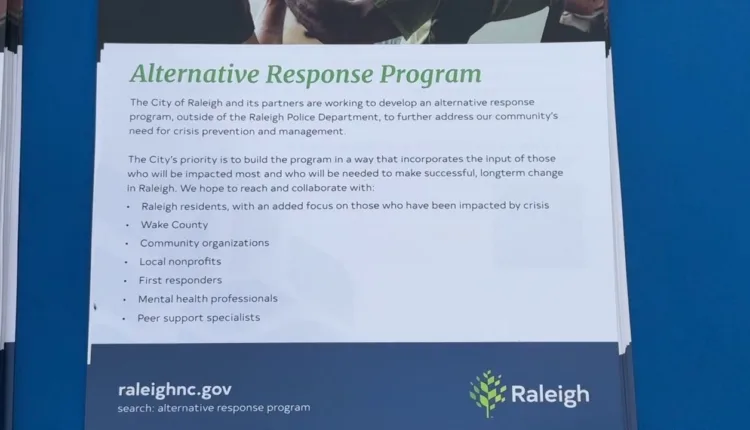
Raleigh’s Alternative Response Program: Share Your Insight
TL/DR –
The city of Raleigh, North Carolina is expanding efforts to address community mental health and substance abuse issues by creating an Alternative Response Program. Building on the foundation of the ACORNS program created in 2020, the new initiative aims to engage community input and will include partnership between social workers or mental health professionals and police officers to respond to relevant 911 calls. The city has held several outreach events to gather community feedback for the program and plans to present community wants to the city council and city managers.
Raleigh’s New Alternative Response Program Aims for Crisis Prevention
In response to community needs, Raleigh is developing an Alternative Response Program aimed at crisis prevention and management. Launched in 2020, the city’s ACORNS program (Addressing Crisis through Outreach, Referrals, Networking and Service) signaled the preliminary step towards this initiative, providing resources for individuals in crisis situations.
Key Points to Note
- The community-driven Alternative Response Program is built on the foundation of the ACORNS program.
- So far, nearly 1,000 individuals have participated in these initiatives.
- Community input plays a significant role in shaping the program.
Raleigh seeks to promote safety and wellbeing in its communities, many of which have struggled with substance abuse and mental health issues due to insufficient resources. The Alternative Response Program, unveiled in December, aims to extend the efforts initiated by ACORNS.
As part of its ongoing commitment to community engagement, Raleigh has held multiple outreach events to solicit public opinion on the proposed program. Lance Shinholser, a community relations analyst, led a team that gathered input from residents, believing their perspectives to be crucial in shaping the program.
Shinholser suggests that the residents favor a mental health-focused, community-driven program. “They want responders trained in mental health responses who reflect their community,” said Shinholser. Furthermore, residents expressed a desire for an unarmed, cooperative response to community issues.
Accordingly, the Alternative Response Program will involve social workers and mental health professionals working alongside police officers to handle specific 911 calls.
Supporter Sherita McCullers believes the program could be a lifeline for the community. “If more resources were available, more lives can be saved. It’d be beneficial to help those battling mental health issues and drug addiction off the streets,” McCullers said.
Shinholser and his team remain optimistic, appreciating the community’s active participation in voicing their expectations for the program. The team plans to present all collected feedback to the city council and city managers, aiming to officially launch the program.
—
Read More US News; North Carolina News
